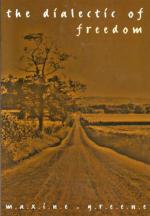|
This section contains 4,902 words (approx. 17 pages at 300 words per page) |

|
SOURCE: "Dewey's Psychology," in Guide to the Works of John Dewey, edited by Jo Ann Boydston, Southern Illinois University Press, 1970, pp. 1-14.
In the following essay, Schneider presents an overview of Dewey's writings on the various aspects of human psychology.
During his years as a student under George Sylvester Morris, from 1882 to 1886, John Dewey thought of psychology not as a science but as a philosophical method and "standpoint." In part, his studies in Vermont, the influence of Coleridge and the writings of the romantic idealists, and in part, the systematic version of this standpoint as it took shape in the mind of Morris led Dewey to believe that for a "critical" understanding of life-mind-nature as an organic whole, it was necessary to show the identity of psychological, logical, and ontological procedure. Morris had conceived such a "dynamic idealism" as a more adequate "experimental" method than the methods of...
|
This section contains 4,902 words (approx. 17 pages at 300 words per page) |

|


